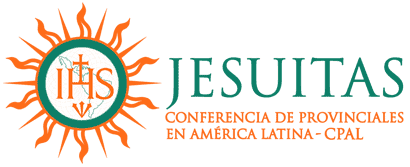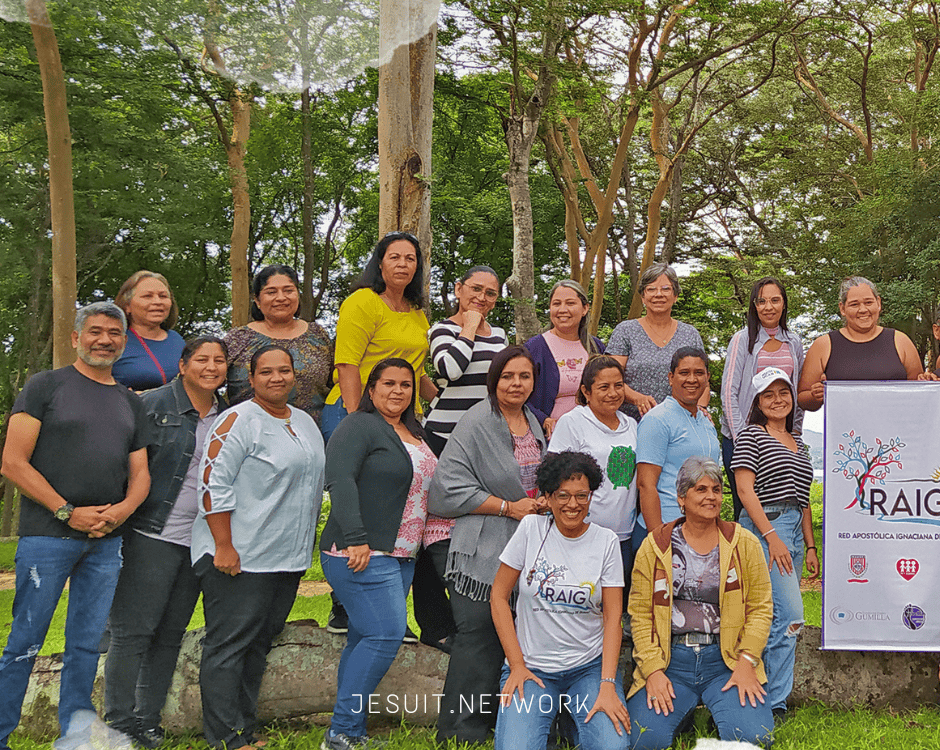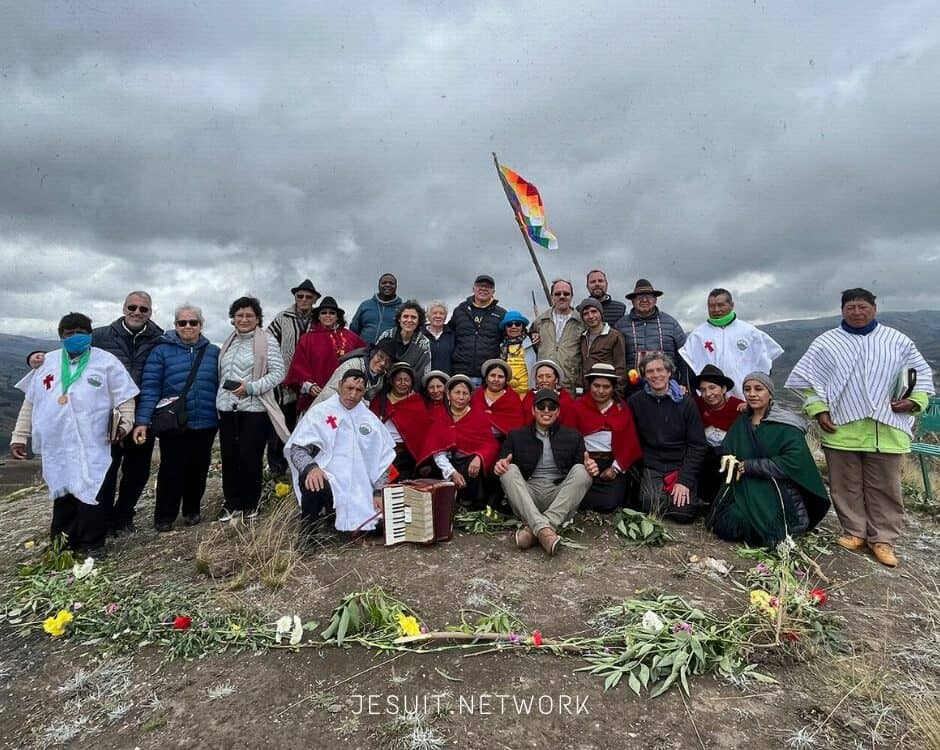This website uses cookies so that we can provide you with the best user experience possible. Cookie information is stored in your browser and performs functions such as recognising you when you return to our website and helping our team to understand which sections of the website you find most interesting and useful.
On “Union of Souls” during Covid
The “union of souls” is a phrase used by St. Ignatius and developed in the Constitutions of the Society of Jesus, in order to care for a community of brothers who, being dispersed throughout the world, wished to remain united in heart with the same style of proceeding. Without being anachronistic, we could ask ourselves if, in the context in which we find ourselves, the current Jesuit educational networks to which they can be exposed in times of crisis? How can we maintain our seal of service and relationship with God in a scenario that seems to distance us from others? The answer comes from a Jesuit language, which is beyond control, since it implies union with the heart itself in order to walk the whole world, representing something, saying something or doing something different. The union of “friends in the Lord”, which inspires but at the same time allows us to respond to the challenges of dispersion. (Osuna, 1998).
Having said that, on the meaning of this very Jesuit expression, we can deepen in its implications having as reference the article by José María Guibert, S.J. (2018) entitled: The promotion of the union of minds, part of the mission of the Jesuit university. In my opinion, his proposals go beyond the mission of the university and, in these times of emergency, can be very inspiring in the decision making process for any work of an educational nature. From there we can find an answer to What can the “union of minds” in times of Covid-19 inspire in our networks and institutions?
The article begins by explaining that, according to the RAE dictionary, one of the meanings of the term “spirit” is soul or spirit, as a principle of human activity. In Spanish, Italian and Latin the term “spirit” exists. However, in languages such as German, English, French or Polish, there is no direct meaning and therefore they have translated this expression as “union of hearts” or as in the Czech case “union of minds”. In general, they all point out that this union is not something external to the person, but that the union is achieved from within the person (Guibert, 2018). For the author, it is a question of responding with this expression to the geographical dispersion of Jesuits throughout the world and the way they are united as one body through their head.
Today, this union of minds leads us to ask ourselves: How can we understand it? How can it be strategic to count on others without losing sight of the horizon? The answer seems simple when we are talking about institutions that have been for years forging leadership with a very recognized service. The answers we are finding in the different networks show us that there is really a change in the paradigm of networking. The current circumstances force us to make an unprecedented discernment (Rodríguez, 2020) because the Covid-19 pandemic has tested the future of what we will be or want to be as educational networks.
The most urgent demand that will possibly play a definitive role in the solutions to the effects of the Covid-19, has three aspects that can play for or against when it comes to responding in a network under a union of spirits. According to Guibert, there are three dangers to which this expression responds: The first is geographical dispersion, which is easy to understand in multicultural contexts; the second is given in the words of St. Ignatius in that another danger that “can generate division is the fact that many Jesuits are “literate”, that is, they may have a tendency or disposition “to be heads of themselves”, which suggests that there may be a tendency to validate themselves, ignoring the voice of others and even of their superiors; the third, refers to the fact that prevé́ Jesuits have a certain relationship with power or authority” (Guibert, 2018), which could make it difficult to take positions or make choices that are difficult to change, directly affecting the mission to serve the most universal good (Sosa, 2019).
In this scenario, we could say that the aspects that Saint Ignatius invites us to take into account, translated in the face of the emergence of the Covid-19 for networking, are the following: The first danger, is delineated by the geography that in his time was a great challenge because of the known or unknown of the world. However, today we have a vast communication system that has allowed us to give continuity to the educational mission of the Jesuit continuum. We have a diversity of resources that can be accessed virtually.
The second danger, we find a characteristic very present in the organizations, is a certain “intellectualism”, which authorizes us to talk about everything and in some cases without saying anything. It also leads us to believe that it is the last word or the absolute truth in the face of a problem that has many nuances. This danger can lead us to believe that we possess absolute knowledge, closing us up in the intellectual ego, generating division and little solidarity, especially with the most vulnerable. The call for our time is focused on being people united in spirit and knowledge. It is from the recognition of the particular knowledge and the territorial experiences that we will have the possibility to sit down to plan and to evaluate according to the diverse roles that the organization has. In this sense, the networks have the infrastructure, but it is the people, in their solidarity leadership – who must encourage this union between the diversity of people and contexts in a collaborative way.
The third danger, leads us to recognize the difficulty that brings us to plant ourselves in positions, options, resources difficult to change. Sometimes organizations “marry” a supplier, a single sector, or even a political position. These frontiers of unity of spirit put us in tension with the whole network, because we are asked not only to think as a university or college, but to act as a body seeking to respond to the common apostolic plan, to our apostolic priorities which are ultimately to do the greatest good according to time, place and person (Sosa, 2019).
In all three cases, the different works require maintaining a union in being and doing. An everyday task inspired by a union of minds, which in the past sought to unite the Jesuits as one body, today we can translate it as the union of the largest network for solidarity and service. We need therefore to value the different responses to Covid-19, so that together we can coordinate and generate the greatest good as a Society and thus be innovative and offer ourselves to help others.
Thus, the union of minds in these times of the Covid-19, asks us for a response from within, allowing new fruits of unity to be born from discernment in common as the greatest strategy to help us and to help others (Rodríguez, 2020). It is truly the time to become more human and for that, we need the experience of all as an educational body that is dispersed throughout the region. We must face the danger of believing that we are far away and not using the means to be with others; let us use knowledge and spirituality as the slogan to serve better, giving ideas and new proposals for all; and let us discern so that the interests that move people in their diverse roles are marked by love and the most universal service.
We are called to respond in an innovative way, proposing new paths for a new normality that we have already begun to shape. This is the moment to make discernment in common a living practice from the union of minds as a characteristic of Ignatian spirituality. Let us not lose the courage to accompany and be accompanied, an opportunity to sustain and be sustained and finally, an opportunity to communicate and to communicate more effectively. This union of minds is a way of taking care of ourselves in the mission that is shared and also requires self-care to interpret together, which constantly makes us networks at the service of a greater mission.





